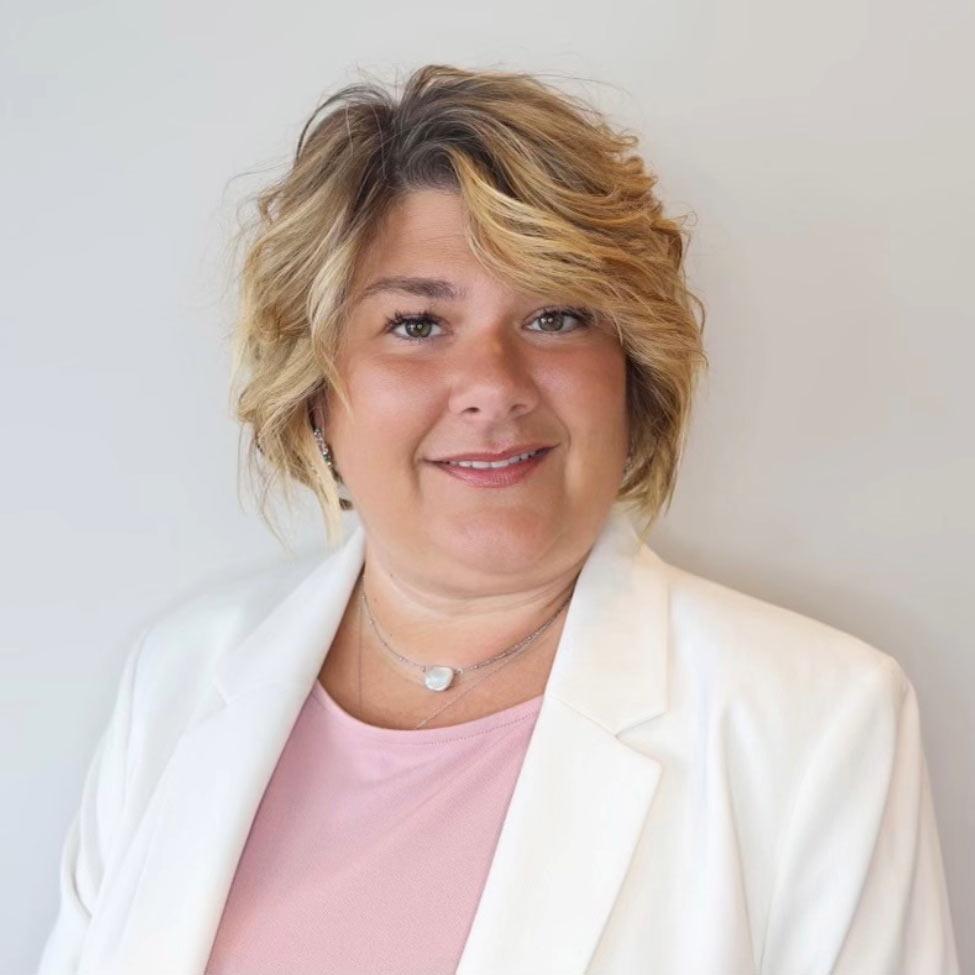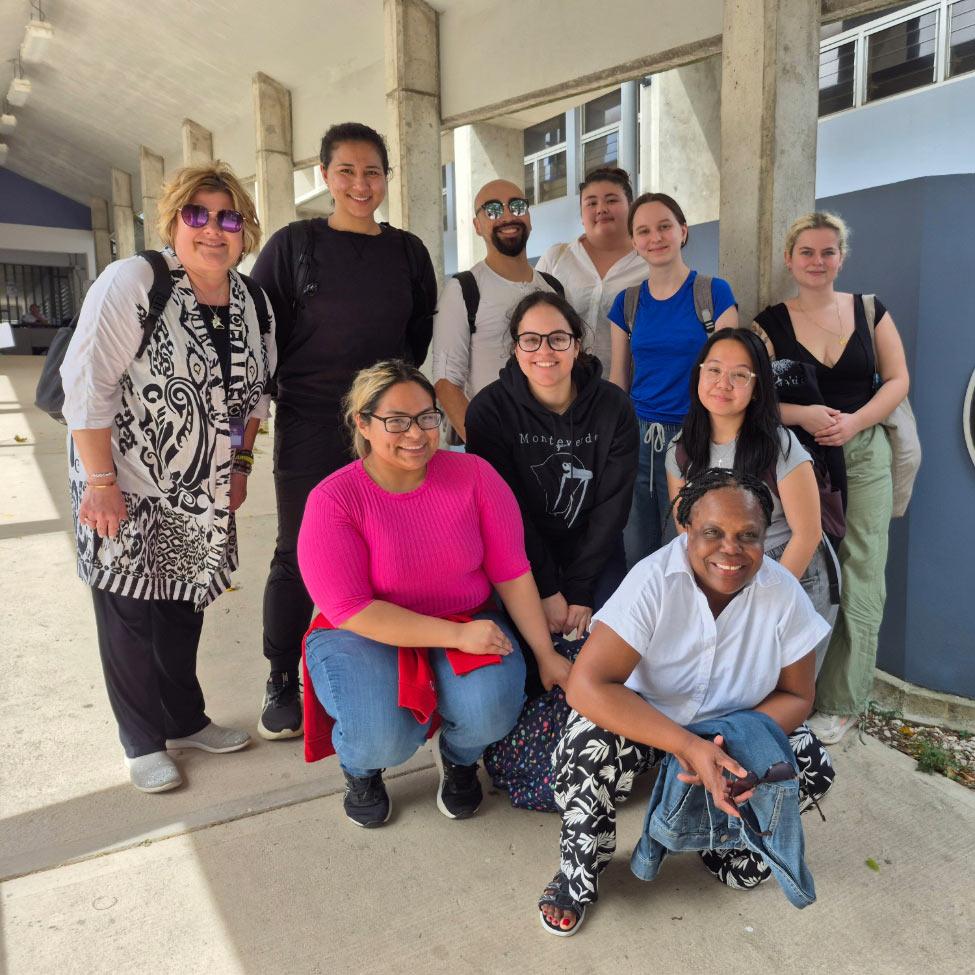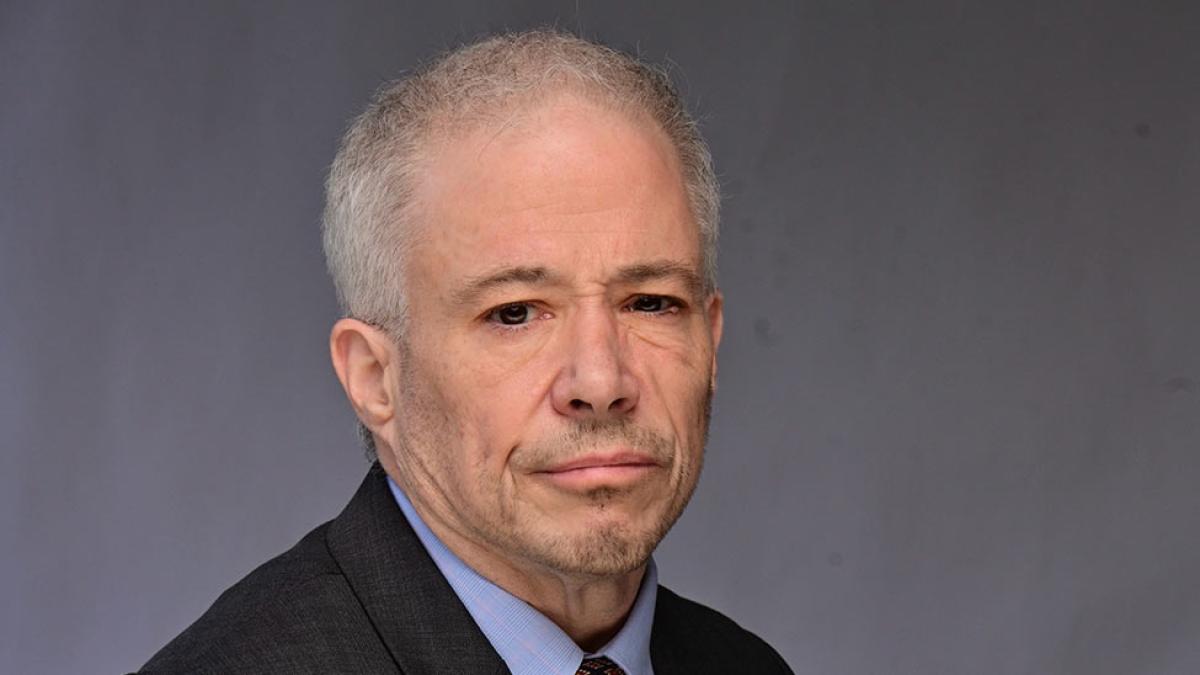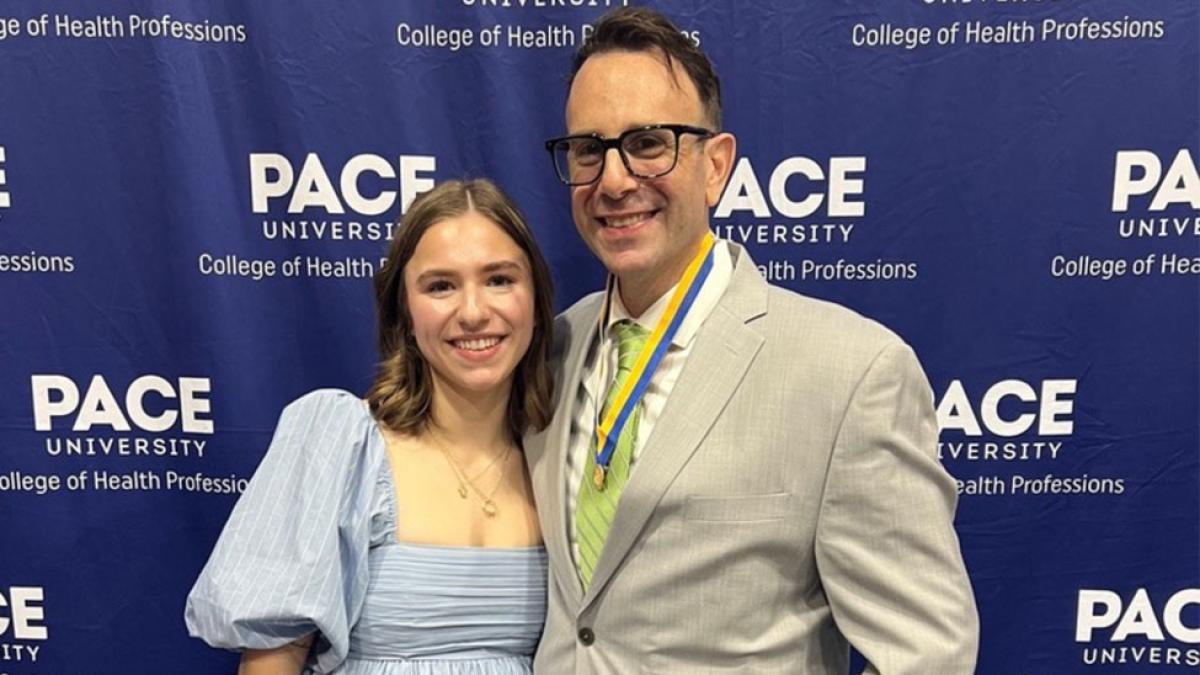
The Importance of Professional Development: Jennifer Tokash, OTD, OTR/L, CBIS, CPAM

Jennifer Tokash, OTD is the academic fieldwork coordinator, and a clinical associate professor for the Occupational Therapy (OT), MS program. A 2023 recipient of the College of Health Profession’s Dean’s Award for Outstanding Teaching, Dr. Tokash is widely respected by the Pace community and her peers in the field.
This past fall, Dr. Tokash was awarded the Merit Award for Service from the New York State Occupational Therapy Association (NYSOTA). We connected with her to learn more about her experience with NYSOTA, the importance of leadership, and her advice for students on their professional journeys.
How did you get involved with NYSOTA?
While working toward my doctorate, I was invited to attend an executive board meeting as part of an assignment. From the moment the virtual meeting began, I felt welcomed and immediately recognized that NYSOTA’s culture aligned perfectly with my personality and professional values. I was inspired by the respect each member showed one another, the encouragement of diverse perspectives, and the active listening that created a space where new ideas were embraced. It was clear that this was an organization where I could grow and contribute, and I knew I wanted to become more involved.
Why do you think it's important as a healthcare professional to attend conferences/engage with professional organizations like NYSOTA?
Being involved in a professional organization connects you with a network of like-minded individuals who are passionate about advancing the field. Organizations like NYSOTA provide invaluable resources, such as legislative updates, the latest evidence-based practices, and advocacy to ensure our profession remains at the forefront of healthcare.
They also offer continuing education opportunities at discounted rates, which is a significant benefit for professionals looking to stay current. One aspect that is particularly important to me is NYSOTA’s Communities of Practice (CoP). As the CoP liaison, I help facilitate connections within 15 different practice areas, allowing members to engage in smaller, specialized groups. These communities foster deeper relationships with colleagues and provide unique opportunities to learn from one another within specific areas of practice.
What inspires you to become a leader for other OT professionals?
My inspiration comes from watching others grow and achieve their fullest potential. Whether it’s seeing junior staff members advance to senior roles or helping students blossom into confident entry-level practitioners, these moments reinforce why I lead.
In clinical practice, seeing therapists take on leadership roles after starting as juniors inspires me to keep fostering an environment of mentorship and growth. Similarly, when students share how my guidance has shaped their journey, it reminds me of the impact we can have as leaders. Helping others thrive and succeed is the heart of my leadership philosophy.
What does service mean to you?
To me, service is about giving back to the communities that have supported and shaped us, as well as reaching those communities where my skillset and resources are not as easily accessible. Serving people in areas with limited access to services is a deep passion of mine.
Growing up in West Virginia, I saw firsthand how individuals often lacked access to state-of-the-art equipment, resources, or even basic necessities. While working in home care alongside my regular responsibilities, I was frequently the only person available to help connect individuals with the resources they needed. It was difficult to witness people living without basic needs, but when I was able to help someone access those resources or find a solution, it reinforced my commitment to continue serving.
Service is also about empathy and advocacy—truly listening to the needs of others and taking meaningful action to make a difference. Whether I’m serving as a healthcare provider, teacher, family member, or friend—or contributing through professional organizations and academic institutions—service means using my time, skills, and passion to create positive change.
— Jennifer Tokash, OTD
Ultimately, service is more than an obligation; it’s a privilege to be part of something larger than myself and to leave a lasting impact on those I have the opportunity to serve.
How has your leadership/service with NYSOTA impacted your teachings at Pace University?

My involvement with NYSOTA has provided me with a wealth of experiences and insights that directly enhance my role as an educator. Through my leadership with NYSOTA, I stay up to date on legislative changes, evidence-based practices, and
emerging trends, which I integrate into my curriculum to ensure students are learning the most current and relevant information.
Additionally, my work with NYSOTA’s Communities of Practice has given me firsthand experience in fostering collaboration and creating spaces for meaningful professional dialogue. I bring these principles into the classroom, encouraging students to engage in critical thinking, interdisciplinary teamwork, and advocacy for the profession.
Most importantly, my service reminds me of the importance of mentorship and leadership, and I strive to model these qualities for my students. It’s incredibly rewarding to see them take the lessons they’ve learned and begin to make their mark on the profession.
What advice would you share with our students on making a difference in their professional careers?
- Stay curious and keep learning. The healthcare field is constantly evolving, and lifelong learning is key to staying relevant and providing the best possible care. Seek out opportunities for continuing education, attend conferences, and stay engaged with professional organizations.
- Be an advocate. Advocate for your patients, for the profession, and for yourself. Never underestimate the power of your voice to create meaningful change.
- Find your community. Surround yourself with people who inspire and challenge you to grow. Professional organizations and networks can connect you with mentors, colleagues, and peers who will support you throughout your career.
- Lead with empathy and purpose. Making a difference starts with truly understanding the needs of others—whether it’s your patients, colleagues, or community—and finding ways to address those needs with integrity and compassion.
- Don’t wait for opportunities—create them. If you see a need, step up. If you have an idea, pursue it. Making a difference often begins with taking the first step, even if it feels small.


